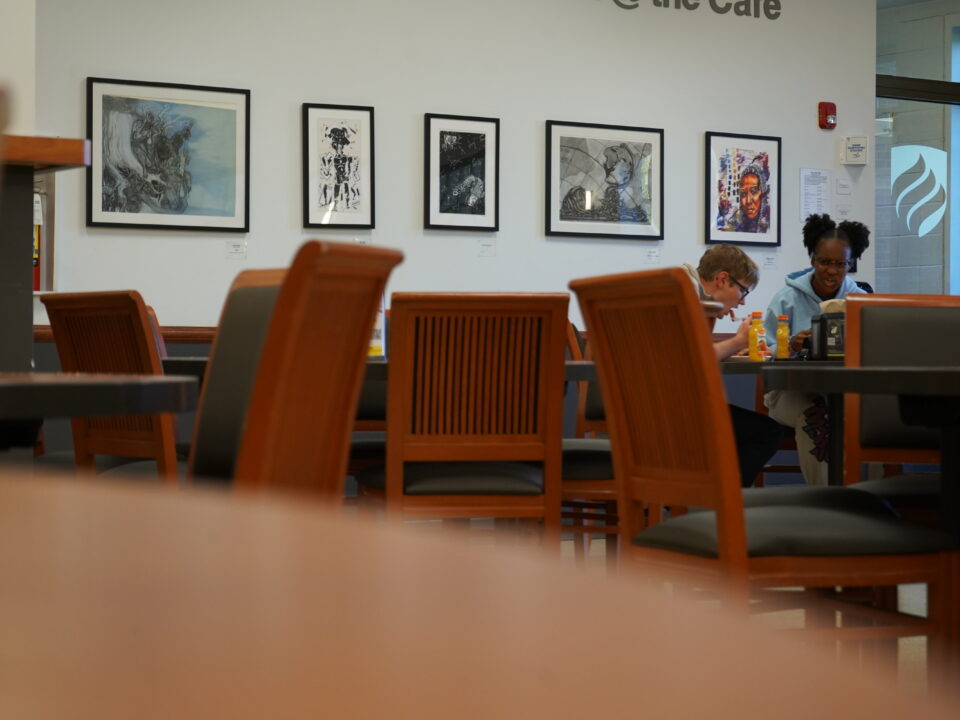EDITORIAL: Elmhurst University should have free menstrual products in all restrooms
One in 10 U.S college-aged women has trouble affording menstrual products, according to a 2021 study of period poverty in the U.S from Boston Medical Center Women’s Health.
This statistic is disheartening, to say the least — no person should have to go through period poverty, and Elmhurst University students are no exception.
EU should offer free menstrual products in all campus restrooms. While some free menstrual products are provided in the Wellness Center, Jean Koplin Memorial Hall, and the Hammerschmidt Memorial Chapel, this effort should be expanded to all campus buildings.
Some students struggle to afford menstrual products, food, and other necessities. According to a 2021 survey from Thinx, a period underwear company, and PERIOD, a youth-run nonprofit focused on getting rid of period poverty and stigma, 16% of students said they have chosen to buy menstrual products over food or clothes as a result of the COVID-19 pandemic.
Additionally, Latinx, low-income, rural, and college students were most impacted.
Students shouldn’t have to choose between a meal or pads and tampons. To help prevent EU students from having to face this dilemma, EU needs to provide students with these basic necessities at no cost.
In addition, students who menstruate need reliable access to menstrual products to carry on with their studies, and this is especially necessary for marginalized students.
Low-income students and students of color are more affected by period poverty than their white and middle-income counterparts.
According to the 2021 survey from Thinx and PERIOD, almost half of Black and Latinx students surveyed feel like they can’t do their best in school due to a lack of access to menstrual products.
The survey also found that students often feel uncomfortable being seen with or talking about menstrual products due to the stigma surrounding periods — 70% of students said the school environment makes them feel “self-conscious” about having periods, 83% hide their menstrual products when they go to the restroom, and 65% don’t want to attend class when they’re on their period.
Not to mention, if students don’t have pads or tampons, they may feel embarrassed about having to ask for them or having to rely on other supplies, such as toilet paper.
Emily Bernadi, director of student health, explained that although she hasn’t noticed any students speak up about struggling with period poverty, it could still very well be an issue, especially considering the fact that many students tend to be afraid to speak about the topic.
“I know a lot of the time when students are experiencing that, it’s something that they’re either embarrassed to talk about or just don’t want to talk about it at all,” Bernadi said. “So, the fact that I haven’t heard about it doesn’t mean it’s not an issue.”
If the effects of period poverty and/or stigma cause a student to miss class, their academic performance can decline as a result. Therefore, it’s vital for EU to make addressing period poverty — and the socioeconomic disparities rooted within it — a high priority.
It’s also important to note that making people pay for their menstrual products is discriminatory on the basis of sex. The population that menstruates includes not only cisgender women but also transgender women and men and gender-nonconforming people, among others.
By placing a price or a pink tax on menstrual products, institutions have been oppressing this diverse population of menstruators for years. In order to improve living and learning conditions for all students, EU must step up and take a stance against period poverty and stigma.
There are two ways EU can start this initiative. The most obvious place to start is by simply placing boxes of tampons and pads in all campus restrooms and restocking them as needed.
Another possible solution could be to offer free reusable menstrual cups or period underwear in the Wellness Center to students who need them. This could be a life-saver for students who can’t afford to pay for pads and tampons each month.
What’s more, offering reusable menstrual products is just one of many ways EU can continue practicing sustainability.
Menstrual products are a basic necessity for about half of EU’s student body, so it’s time for EU to start treating them as such — period.


